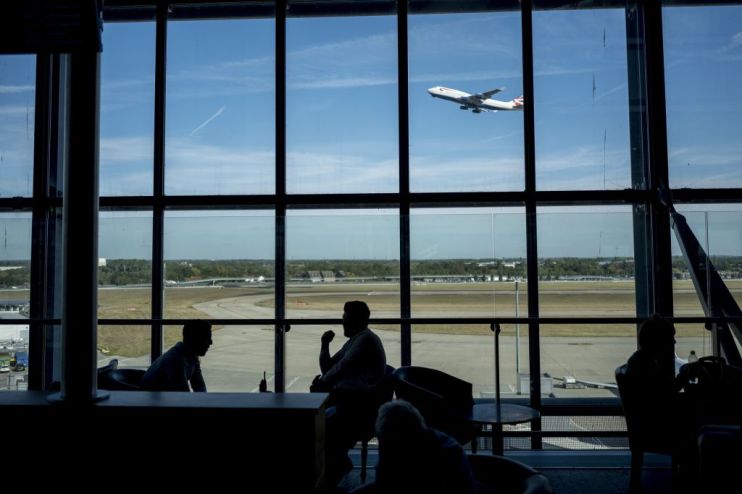Heathrow plummets to £2bn loss in ‘toughest year in airport’s history’

Heathrow Airport plummeted to a loss of more than £2bn last year, amid the “toughest year by far” in its 75-year history, the company announced this morning.
The airport crashed to an annual pre-tax loss of £2.01bn for the 12 months to 31 December, down from a profit of £546m in 2019.
Revenue plunged 62 per cent to £1.18bn, down from £3.07bn in 2019, which Heathrow said “underlined the devastating impact of Covid-19 on aviation”.
The grim results led the airport to issue a going concern warning, saying the “existence of a material uncertainty… could cast significant doubt upon the group and the company’s ability to continue as a going concern”.
Speaking to the BBC, chief executive John Holland-Kaye said that despite the financial destruction of Covid-19, the airport had £4bn in funding – enough to see it through to 2023.
“That means we can plan with confidence not just to rebuild our own business but to help the UK’s economy recover”, he said.
But he warned that unless governments could find a way to get long-haul travel going again, the recovery would remain grounded.
“Until we can reestablish long-haul flights all over the world we’re not going to be able to get the economy going full speed.”
Passenger numbers down 73 per cent in 2020
Heathrow’s losses come after passenger numbers at the airport collapsed 73 per cent to 22.1m last year, as the coronavirus crisis forced countries to close their borders and England went into its first national lockdown.
More than half of those passengers travelled in January and February last year — before the pandemic began to make its mark on the UK. By April 2020, passengers had fallen to only three per cent of 2019 levels.
The airport urged chancellor Rishi Sunak to hand out further support for the ailing sector, with international travel not set to resume until at least 17 May.
“Government policies over recent months have effectively closed borders. We have had no government support, other than furlough, and have not been given relief from business rates, unlike other airports, retail and hospitality businesses,” the airport said in a statement.
Before the Open: Get the jump on the markets with our early morning newsletter
Holland-Kaye added: “2020 has been the toughest year by far in Heathrow’s 75-year history.”
“But despite £2bn of losses and shrinking to passenger levels we haven’t seen since the 70s, I am hugely proud of the way that our colleagues have kept our passengers safe and the UK’s hub airport open for vital supplies throughout,” he added.
“We can be hopeful for 2021, with Britain on the cusp of becoming the first country in the world to safely resume international travel and trade at scale.”
Unveiling his roadmap earlier this week, the Prime Minister suggested foreign travel could resume as early as 17 May if coronavirus cases continue to fall, adding that ministers were considering plans to introduce international vaccine passports.
Health secretary Matt Hancock announced yesterday that a new travel taskforce will review the risks of bringing mutant variants back into the UK, with a decision on when to lift the current ban on oversees travel to be announced as early as 12 April.
Both Denmark and Sweden have announced plans to introduce digital vaccine certificates to kickstart tourism after almost a year of hibernation.
Meanwhile, Greece has led the charge in pressuring the EU to expand to scheme further across the continent.
Greece’s tourism minister yesterday called on EU leaders to “move more quickly” to embrace vaccine certificates, as Athens seeks to repair its battered holiday industry.
“Looking at the reaction of some countries to vaccination certificate proposals, I feel there’s a lot of short sightedness. There’s more to be done now to prepare ourselves,” minister Haris Theocharis told the Financial Times.
However, the critical summer season remains in doubt for the UK’s aviation industry as governments around the world tighten their borders amid fears that new Covid variants could scupper vaccine efforts.
While Britain’s largest ever vaccination programme continues to roll out at pace, the EU’s immunisation efforts have been severely hampered by limited supply of vaccines.